

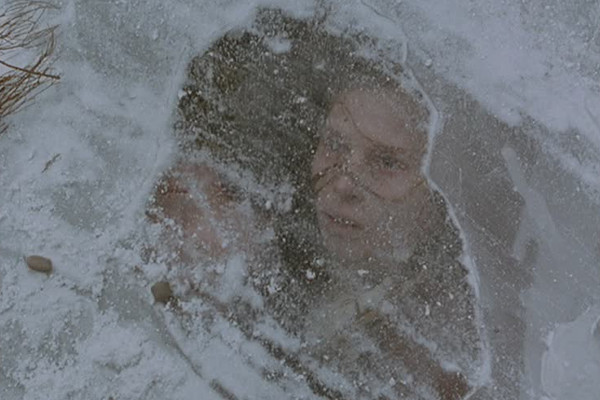
It is a miracle that this was ever finished, frankly. But somehow, producer June Wyndham Davies, director Sarah Hellings (far more comfortable with this material than with 'The Mark of Rani' and its sentient trees) and screenwriter Trevor Bowen manage to overcome the problem that their leading man was dying and construct a sombre, brooding drama despite it having few redeemable characters.
It is wonderfully played by a terrific cast including Joanna David, Tom Chadbon, Deborah Findlay and a star-making turn by Ciaran Hinds and it finishes with the unforgettable image of the murdered Lucy Browner under the ice and Jeremy Brett's chilling soliloquy on the inevitability of evil:
What is the meaning of it, Watson? What object is served by this circle of misery and violence and fear? It must tend to some end, or else our universe is ruled by chance, which is unthinkable. But what end? There is the great standing perennial problem to which human reason is as far from an answer as ever.
But it is really just a grand guignol melodrama with a few appearances by a diminished Brett - a sad coda to a marvellous series, but one that ensured that at least The Memoirs finished in reasonable style.
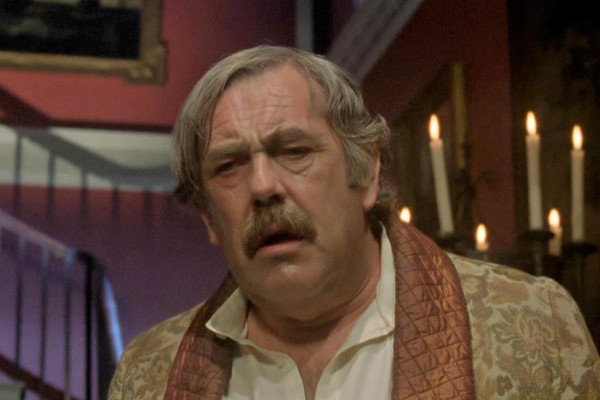
There is not much action in Arthur Conan Doyle's story here and so screenwriter Derek Marlowe tries to make up for it with humour. There is quite a bit of (admittedly enjoyable) padding with scenes between Holmes and Watson at the barber's and at 221B as well as a degree of farce when the villains put on some awful Russian accents.
Patrick Newell, always cast as comedy fat men, but lacking any real screen charisma or comic timing in my opinion, is the titular patient, who turns out to be a criminal on the run from his old accomplices. His death at the hands of his former colleagues seems entirely justified and they get away with it, only to die off screen in a boat wreck.
As Marlowe significantly improved ACD's weak ending of 'The Greek Interpreter', it is puzzling and frustrating that he does nothing to redeem the final act of this rather flat affair. The only real low point in the otherwise dazzling second season of The Adventures.
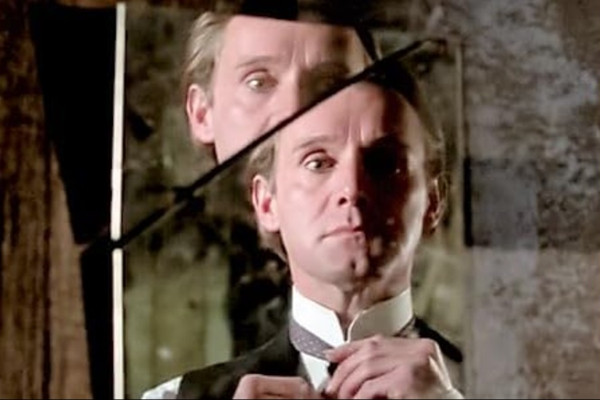
I know I keep having issues with Arthur Conan Doyle's stories, rather than the series, but the screenwriters were perfectly at liberty to correct plot holes and lapses of logic. Yet here, Alan Plater, a writer with as solid a set of leftwing credentials as it was possible to acquire (even in the Bolshevik '70s and early '80s), goes along with ACD's ludicrous (and frankly insulting) premise that a professional beggar could elicit enough money to enable his family to live a lifestyle equal to that of the upper classes.
Given that this came out at time when most people had seen their real wages and standard of living decline for half a decade, for the first time for forty years, and unemployment had peaked at 3 million in 1985 when this episode was filmed, it does seem a little insensitive not to have challenged contemporary Conservative government rhetorical eyewash about shirkers, benefit cheats and dole skivers living a life of luxury by sponging off others.
Thankfully Brett is on such captivating form and the scenes of East End squalor are so well realised, one only realises just how preposterous and wrong-headed the whole thing is right at the end.
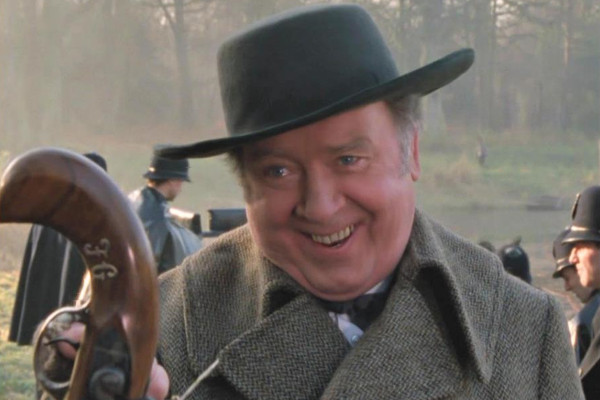
This is another poor fit for Holmes and Watson and the worst of the truncated second season of The Return. The plot is little more than a dramatic run-around and it is not helped by the frankly bizarre performance of Freddie Jones as Inspector Baynes.
I can appreciate that the director, Peter Hammond, wanted something distinctly different to Colin Jeavons' over-promoted Lestrade, or Denis Lill's unimaginative Bradstreet, but he needed to remember that he wasn't filming The Avengers anymore and that there was no more need for the 'British eccentric of the week' which Brian Clemens's series perfected (and then seriously overdid).
Hammond, whose fondness for filmic references has already been noted in 'The Golden Pince-Nez' - tries to channel his inner Tarkovsky here, with lots of shots of characters reflected in mirrors, as well as the irritating camera angles and close-ups that bedevil Hammond's subsequent work in the series. The fact that an old hack like Hammond kept being invited back after this weak effort clearly indicated that Granada were no longer willing to pay for the top TV directors, such as John Bruce and Alan Grint, that they had used hitherto.
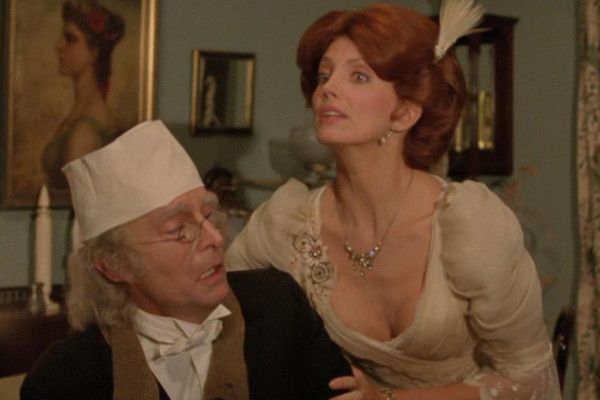
Can I admit that I find Brett's disguises as Holmes extremely unconvincing and unfortunately highly reminiscent of Anthony Ainley's increasingly bizarre get-ups which did so much to damage the quality of Peter Davison's otherwise very solid run as Doctor Who?
If that wasn't enough, we have one of Arthur Conan Doyle's typically anti-Teutonic stereotypes in the character of the King, who is rather amateurishly played by Wolf Kahler. But Gayle Hunnicut is great as Irene Adler - it is quite right that Holmes would not have fallen for a younger woman in the same way. And (when he is out of disguise), Brett as Holmes is magnificent - cunning, manipulative, and generous in his final defeat by 'the woman.'
This first episode was the talk of the sixth form the day after I first saw it in 1984 and came just at the point when Doctor Who itself dramatically nosedived in quality and performance. As a friend advised Cox, 'if you're casting the lead in a series which might last four or five years, it's a hell of a long time to be wrong!' Granada got it so right, just as the BBC got it so wrong.
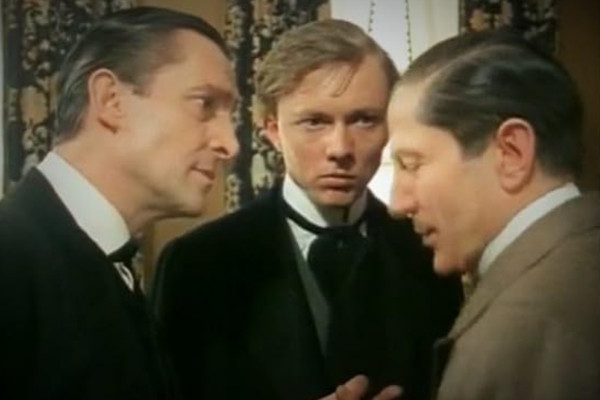
So - we can accept that a beggar can, from his takings, live among the richest in gilded, imperial London (see 'The Man with the Twisted Lip'), but we are not allowed to accept that the police might mistake rabbit bones for the few remaining traces of the victim of a fearsome conflagration?
Richard Harris, the screenwriter comes up with an ingenious solution to this rather minor hole in ACD's original tale - that the Norwood Builder murdered a tramp to stage his own disappearance after the fire, but he makes no attempt to overcome the problem that there was no good reason why a wealthy man would remain in his own house after faking his death - he would surely have left England under his assumed name - 'Mr Cornelius'. As no British citizen, especially not a wealthy one such as Jonas Oldacre, would have been challenged in either Dover or Calais (there were no such things as passports before 1915), suggesting that Oldacre would leave himself quite so easy to discover really rather ruins the tale for me. And this is despite Brett's cat-like grace (which remains just this side of camp throughout the series) and Colin Jeavons' most wonderfully exasperating performance as the terminally dim Lestrade.
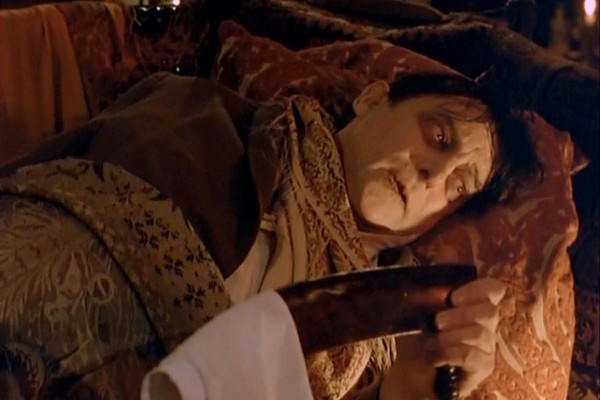
Brett's last great hurrah and surely a rather cynical exploitation of his well-reported battles with ill health which filled the newspapers in the late '80s and early '90s. Brett was indeed dying by this point, dependent on an oxygen mask on set, frail and with a serious heart condition. So the scenes where Holmes is apparently on his death bed, pleading with his poisoner, Culverton Smith, who has come round for a good gloat, are especially poignant when one knows just how sick he actually was.
So, let's get this straight - knowing that his physical deterioration was no longer possible to hide, Brett and the production crew chose to draw attention to this and to make a dramatic incident from his ill-health. I'm not sure if that is professional commitment of an astonishing level or just exploitative. As long as you don't know any of this (sorry), you can enjoy Brett's final undiluted triumph as he suddenly recovers and reveals he has been faking.
It is a marvellous moment, but one that needs contextualising. As soon as the filming was over Brett had to be taken to a psychiatric hospital where it was discovered that the lithium he had previously been prescribed had caused his heart to double in size and that he had not much more than a year to live. To say that this is uncomfortable viewing is more than a little bit of an understatement.
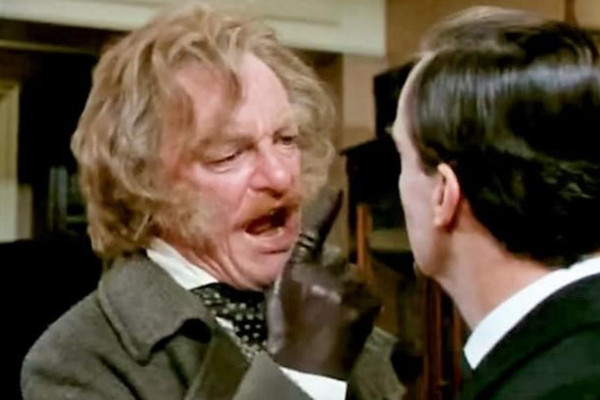
Another famous tale, but one with almost no logic to it at all. Why on earth anyone would go to the trouble of training, secreting and releasing a venomous snake to do one's dirty work is completely baffling and it's no surprise that the villain gets hoist by his own petard (or rather bitten by his own snake) at the end.
And the idea that someone called 'Grimesby Roylott' could turn out to be a wrong 'un is hardly a major plot twist, especially when portrayed by the snarling Jeremy Kemp (who famously played Jean-Luc Picard's older brother in Star Trek: The Next Generation) with some of the most ludicrous stick-on facial hair in a series that had more than its fair share of dodgy beards and moustaches.
But the scenes with Brett and Burke as they lie in wait for Roylott's final act are full of tension and the vigour with which they come to plucky Helen Stoner's rescue is directed with suitable brio and energy by John Bruce.